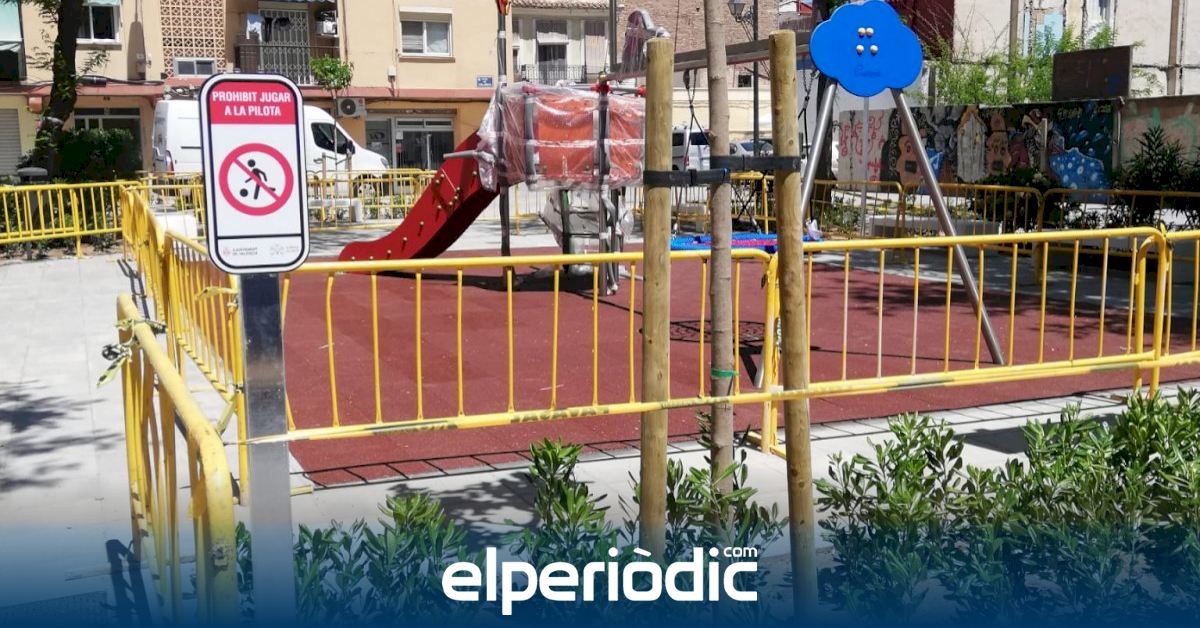The works of conditioning and total reform of the garden of the Plaza de Calabuig in the Cabanyal-Canyamelar neighborhood have already finished, a reform financed by EDUSI Funds, of the European Union, as explained by the Deputy Mayor and Councilor for Ecology Urbana, Sergi Campillo, “represents a new impetus for EDUSI projects in the neighborhood, in this case in the Urban Ecology area.”
In fact, the vice mayor added, from this same area “we continue to work on the reform of other important gardens for the neighborhood, such as the Plaza del Doctor Lluch or the Font Podrida”, which will gradually improve the appearance general area of the area and generating new spaces for leisure, coexistence and citizen use.
The remodeling work of the green area, which has been carried out in recent weeks, has consisted of the comprehensive renovation of the children’s play area located in the center of the garden, and the replacement of tree and shrub species in the area. perimeter landscaping. The safety pavement of the playground has been changed and the plant species have been replaced. “Now the residents of Cabanyal-Canyamelar can already enjoy this small garden area in this square, which has also undergone a comprehensive remodeling and pedestrianization by the Urban Planning Department”, added the deputy mayor, Sergi Campillo.
The works began on April 26, and have been extended over four weeks. It has acted on an area of 440.81 m², with a budget of € 21,450.88 (VAT included). The firm Pavasal Empresa Constructora SA has taken over the works. It is a project carried out within the Sustainable and Integrated Urban Development Strategy of the Cabanyal-Canyamelar-Cap de França Neighborhood (EDUSI 3C València) co-financed by the European Regional Development Fund FEDER within the framework of the Pluriregional Operational Program of Spain 2014- 2020.
A SPACE OF COEXISTENCE
The purpose of the work is to improve the urban space of the Jardin de la Plaza de Calabuig. The aim was to give value to this area, which is one of the few green spaces in its environment, but which did not have the capacity to act as a space for coexistence for the residents of the neighborhood. For this reason, it has been an intervention aimed at improving its attractiveness, particularly for children in the area. As underlined in the project of the action, “the action has tried, in parallel, to promote social cohesion of the inhabitants of the neighborhood, and prevent social exclusion; as well as facilitating the integration of children with functional diversity, using adapted games for this purpose.





